- December 18, 2022
- Posted by: admin
- Category: BitCoin, Blockchain, Cryptocurrency, Investments
As the World Cup in Qatar comes to a close, a report from Web3 Studios revealed exciting insights into the sporting metaverse industry, which it claims is “at an inflection point.” It indicated the potential for the industry to hit $80 billion in size by 2030.
The report included contributors from Animoca Brands, FaceIt, ConsenSys, The Football Company, Apex Capital, Upland, LootMogal, and other key players in the space.
The World Cup was well represented by web3 projects and brands, as the below image showcases.
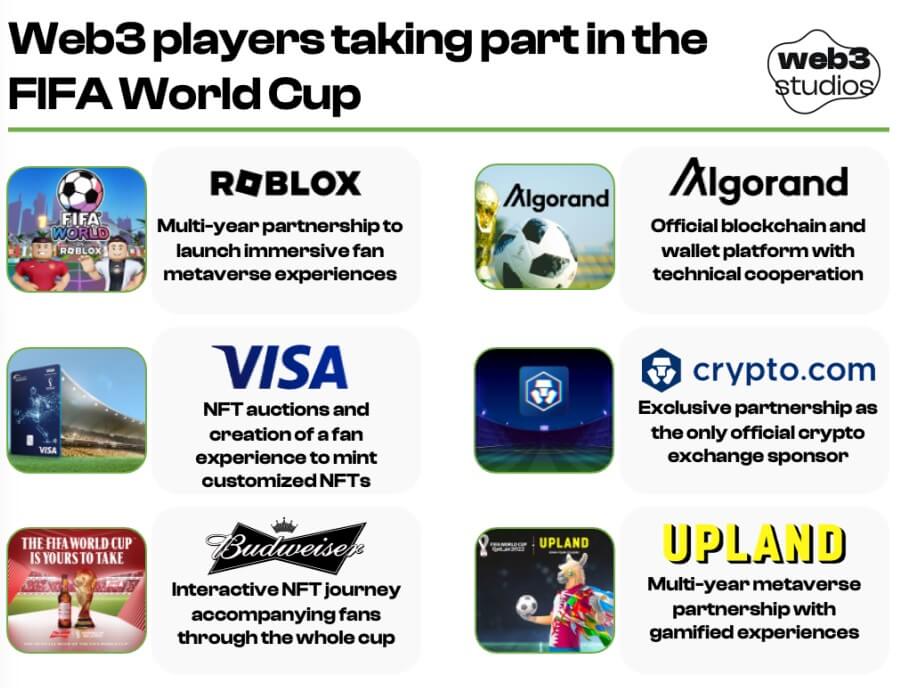
The document declared that “the sports metaverse space may generate more than $80bn by 2030.” However, the subsequent challenges are being addressed and are critical to the nascent industry’s success.
“- A drastic and fast-paced evolution in consumption pattern
– An increasingly demanding and harder-to-engage fan base
– A technological landscape that is impossible to keep track with”
Sporting metaverses are described as “a new layer of human interaction,” according to Web3 Studios, creating both virtual experiences and new access points into sports.
As sports teams and celebrities arguably have a more direct impact on people’s daily lives than politicians, the power of the underlying global sports industry is hard to ignore. The sporting community has been an early-stage adopter of “new elements such as NFTs and
web3 apps” in an attempt to reach the “holy grail” of optimal fan engagement.
The image below showcases the landscape of web3-enabled sports products, services, and communities.
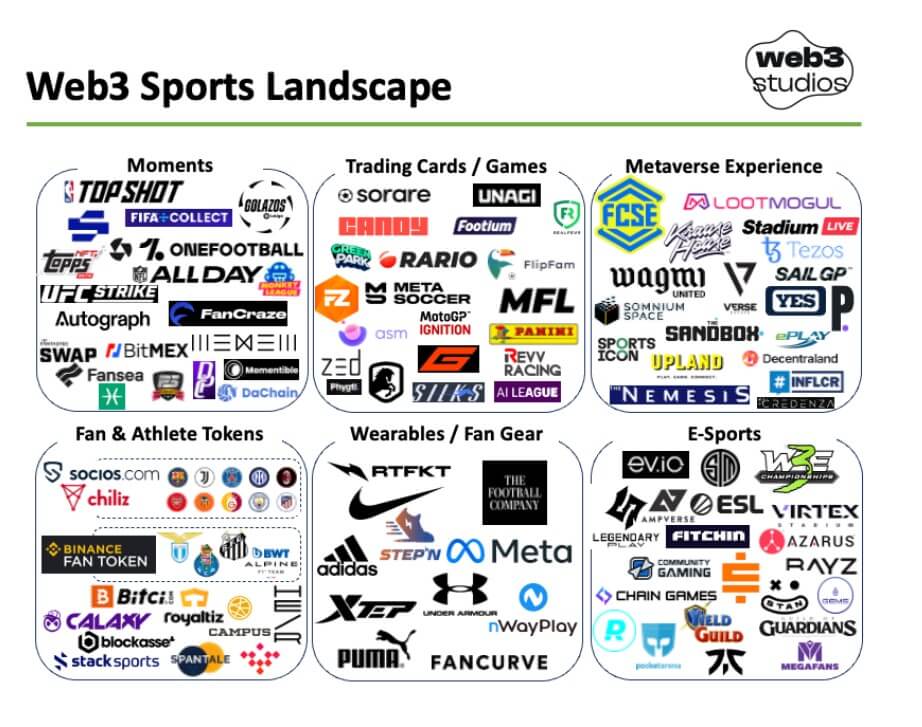
In addressing the need for virtual experiences within a heavily physically-focused industry such as sports, the report identified the “binary” reception to web3 by sports fans. While fans often love or hate innovations such as NFTs, Web3 Studios parallels the reception to understanding the technology. Further, it sees the future of collectibles as digital rather than physical.
“In an ever-digitizing world, even our long-loved physical collectibles and sports experiences will eventually become digital, at least to some degree.”
Web3 Studios identified the rise of esports as a core driver and precedent for the future evolution of digital sports. Games such as Dota2 have brought mind-boggling prize pools, while League of Legends and Fortnite have brought hundreds of millions of players into esports.
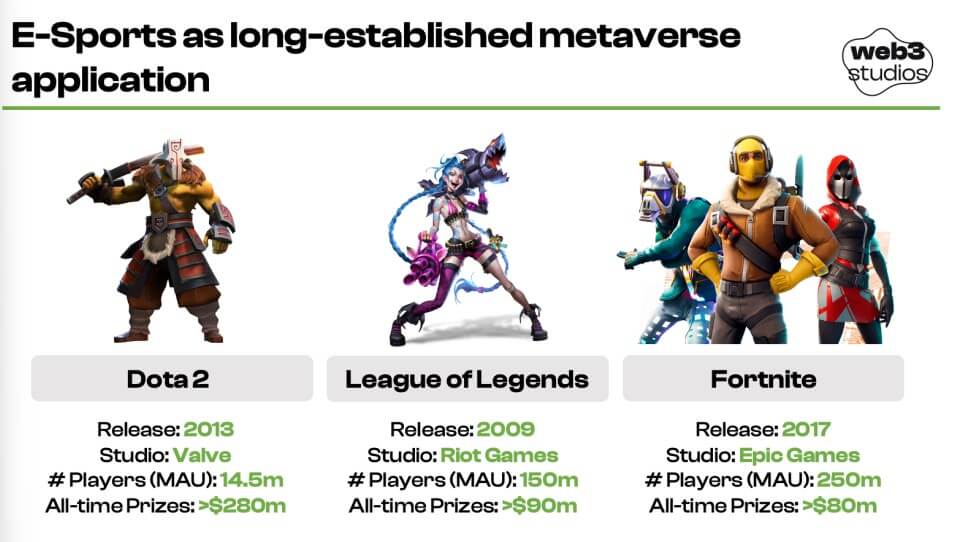
However, none of these above games have any form of web3 integration and live firmly in the world of web 2.0. Yet, games of the web2.0 esports world may have led the groundwork for what is to come in web3.
“Pro-active participation” will drive the next leg of sports consumption, according to the report, a prediction that places web3 apparently in the driving seat in terms of technological suitability.
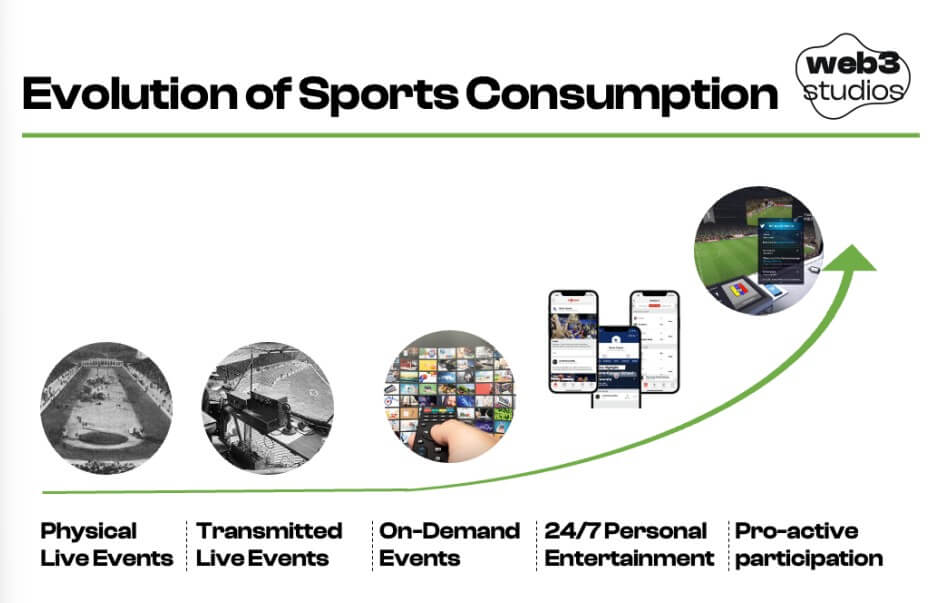
Historically, sports have been at the heart of live events, with matches played in front of live audiences at stadiums worldwide. Going back to ancient Greece and the first Olympic Games in 776 BC, live sporting events have existed for millennia.
As technology has evolved, first radio, then television, and now the internet has opened these live events up to the world. The makeup of Gen Z’s sports consumption pattern is vastly different from those of the Baby Boomer generation. For example, “Gen Z fans, for example, have a much higher
willingness to pay for sports content.”
An example of the growing investment from web3 companies into traditional sports can be seen through the graphic below, which showcases the extraordinary growth in sports sponsorships from crypto projects.
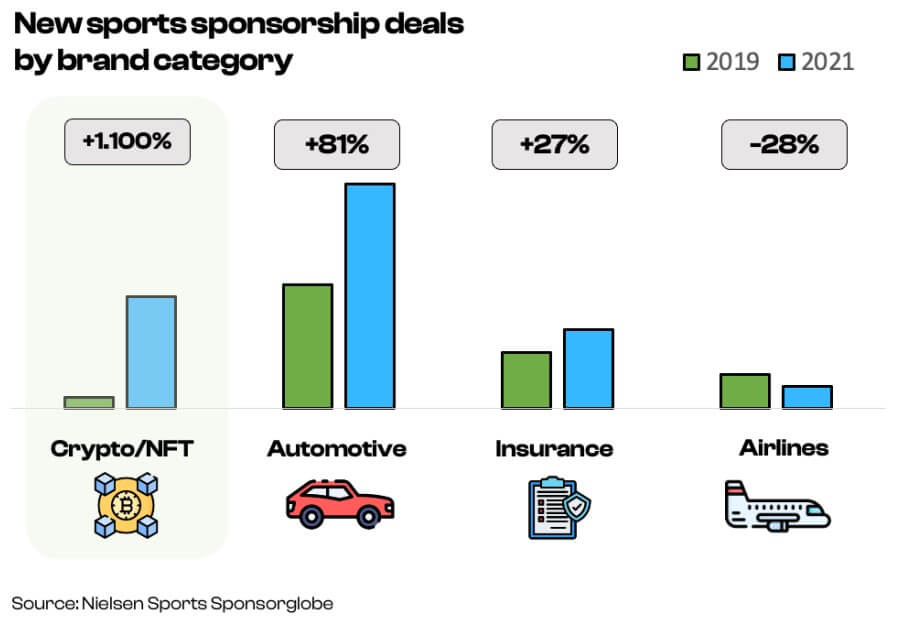
Critically, a move from “passive to active fan engagement” may be the ultimate catalyst for web3 to make its mark on global sports. Current web3 integrations in the sports industry exemplify Web3’s ability to deliver this improved engagement. Experiences include using web3 to store mementos of significant moments, trading cards, games, fan gear, fan tokens, and esports.
Ralf Reichert, the Chairman of ESL FACEIT Group, commented,
“NFTs and web3 are interesting technologies to enhance fan
monetization while the Metaverse is already there, called
videogames. A consistent combination with clear fan value will make
abigdifference for communitybuildingande-sports.”
Read the full report on the Web3 Studios website.
The post Sporting metaverse at $80B inflection point as World Cup ends appeared first on CryptoSlate.
